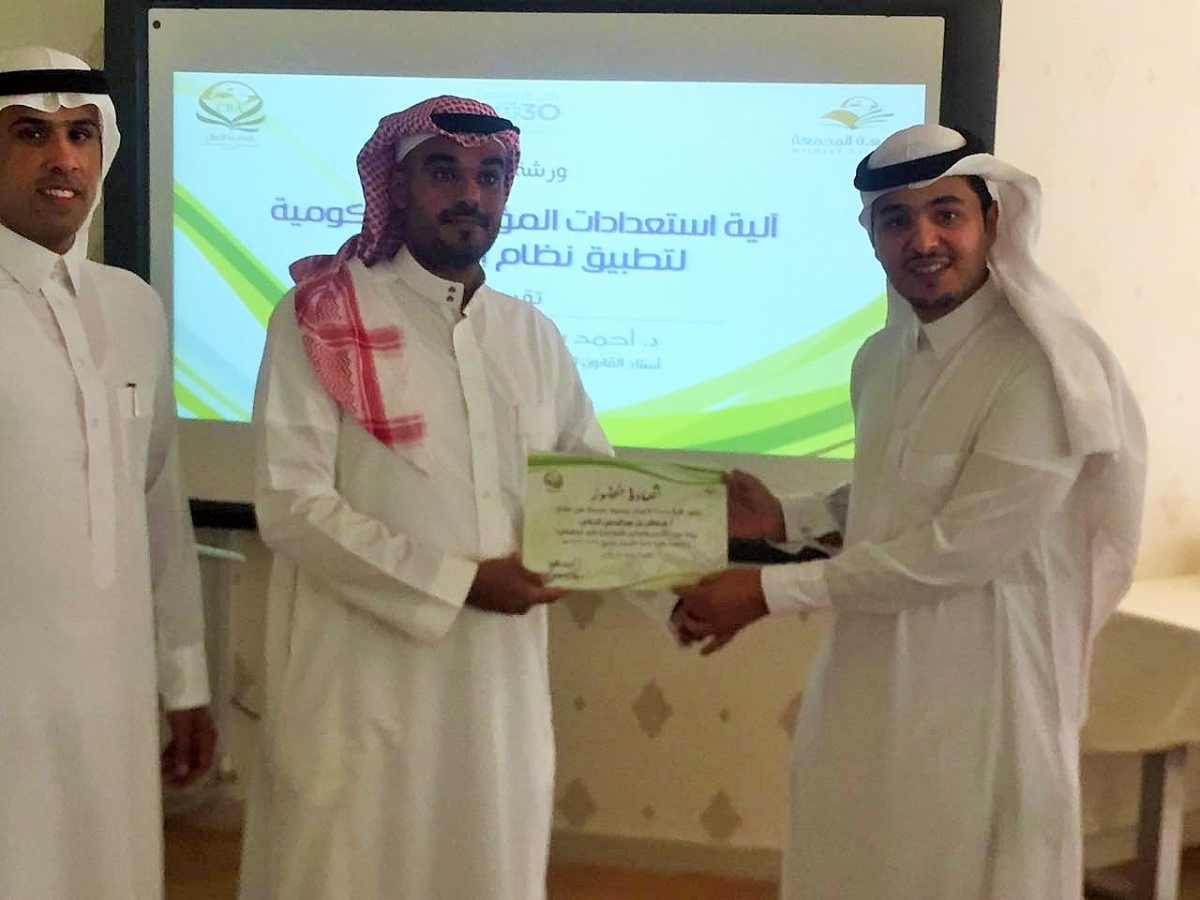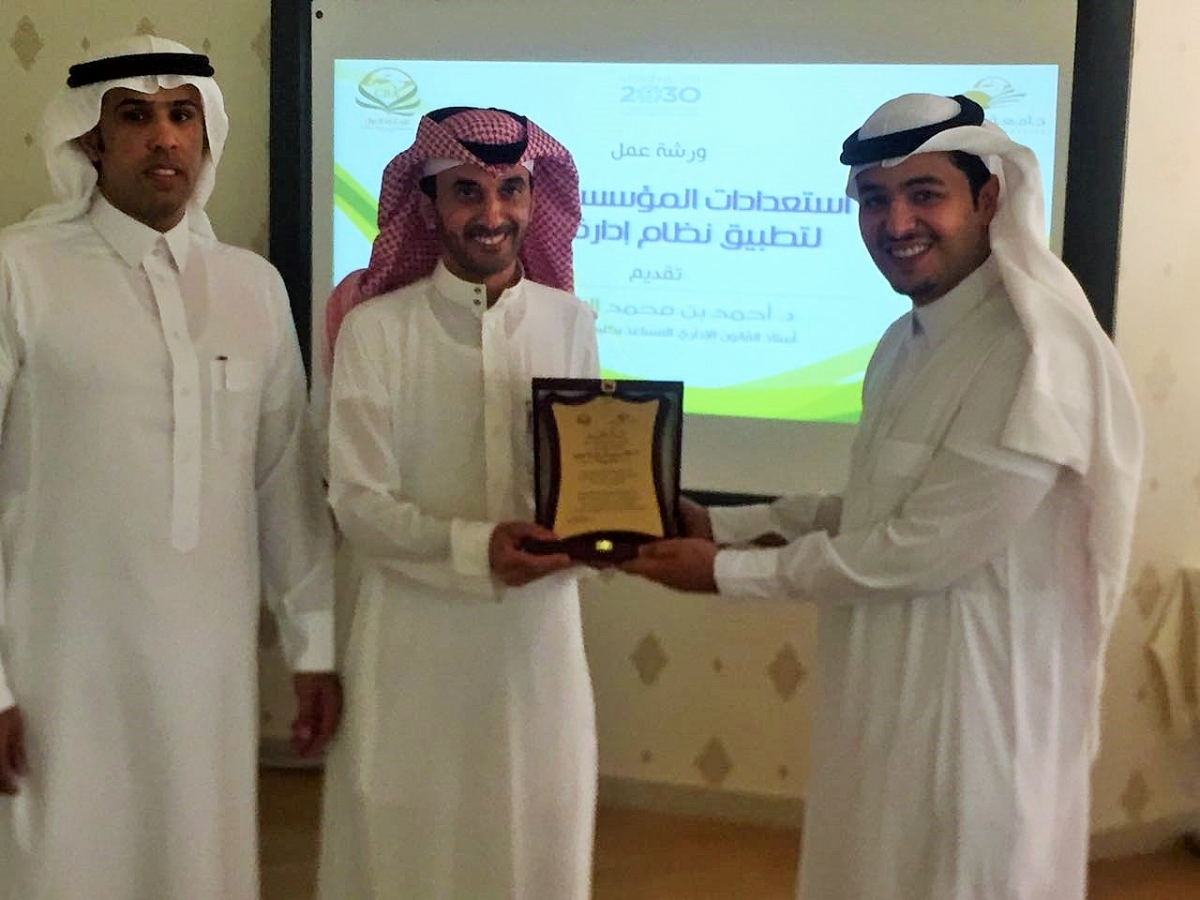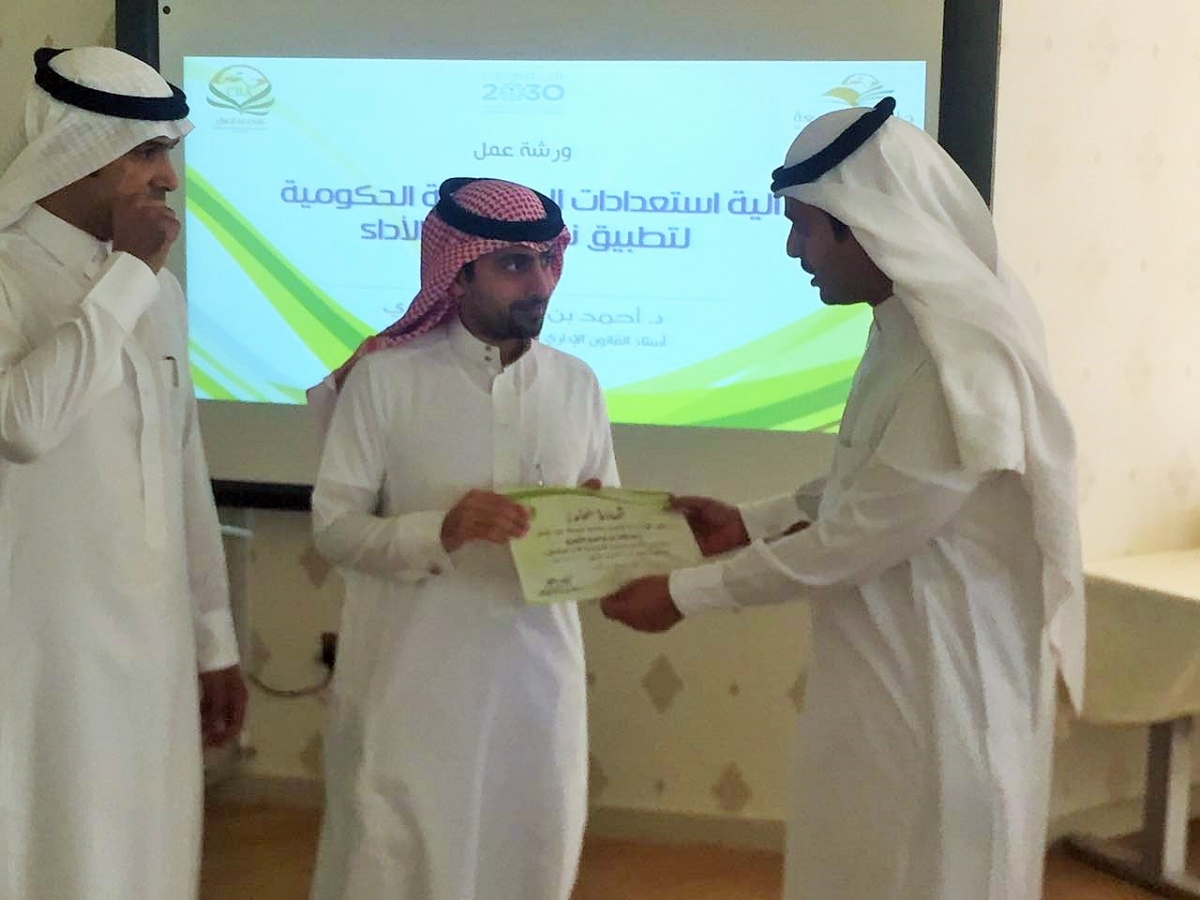Following the instructions by Majmaah University Rector regarding leadership in academia and community service, the College of Business Administration held a workshop entitled “Foundations and Methods of the New Regulations of Employee Performance Management” aiming to clearly understand the New Regulations of employee performance management approved by the Minister of Civil Service. The New Policy will replace the current one with regard to Employee Assessment beginning on 01/1438.
The College Dean Dr. Saad Al-Muflih welcomed the attendees at the start of the workshop, the first of its kind to deal with the concept of the new regulation approved by the Ministry of Labor concerning Performance management.
The purpose of the new policy is to improve employee performance at Majmaah University via measuring the employees’ efficiency and distinguishing hardworking individuals from underachievers.
Following his welcome, the dean spoke about the vision of 2030 and the objectives related to the job performance and the efficiency indicator of the government, which was the point of discussion of the workshop.
Furthermore, he pointed to the performance agreement and the differences between the objectives and skills in the New Policy of Employee Performance.
Subsequently, Dr. Ahmad Al-Shamari-Assistant-professor of Administrative Law at the Department of Law in the college- started the discussion of the first topics which included the following:
• The New Employee Assessment Policy and its importance.
• Key performance indicators of employee performance.
• Cycle of performance management and its significance.
• Preparation of the government for the Performance Management System.
• Samples of Employee performance assessment.
Then Mr. Khalid Aba Hussein- lecturer at the Business Administration Department- talked about the duties and rights of the public servant:
• Duties of the public employee.
• Restrictions of the Public Service Job.
Afterwards, Mr. Khalid Al-Thiabi- Director of the Follow up Department- spoke about the management of observation before and after the new policy of employee assessment. His discussions addressed the following aspects:
• Duties and responsibilities of the Department of Observation.
• Achieving productivity by regular attendance.
• Employee productivity and commitment leading to good employee assessment.
• The e-system “Present” and the observatory Tours Program will be available for the direct supervisor when preparing the employee performance assessment.
• If the employee received an unsatisfactory assessment report for the second and third time in a row, the Observation Department would enforce suitable disciplinary actions.
• Training courses and its relationship to the regular attendance and commitment of the employee.
Several leaders attended the workshop which ended with awarding certificates of attendance to the attendees and appreciation awards to the presenters in recognition of their participation in such productive events on campus.
Recommendations of the workshop included:
• Establishing a human resources department on campus.
• Preparing samples of employee performance assessment.
• Making an annual plan of performance management per the 5th article “An annual plan should be prepared by the human resources department at any public institution and approved by the executive officer of such department.”
• Designing E-Systems concerned with facilitating the statistics of employee performance assessment.











